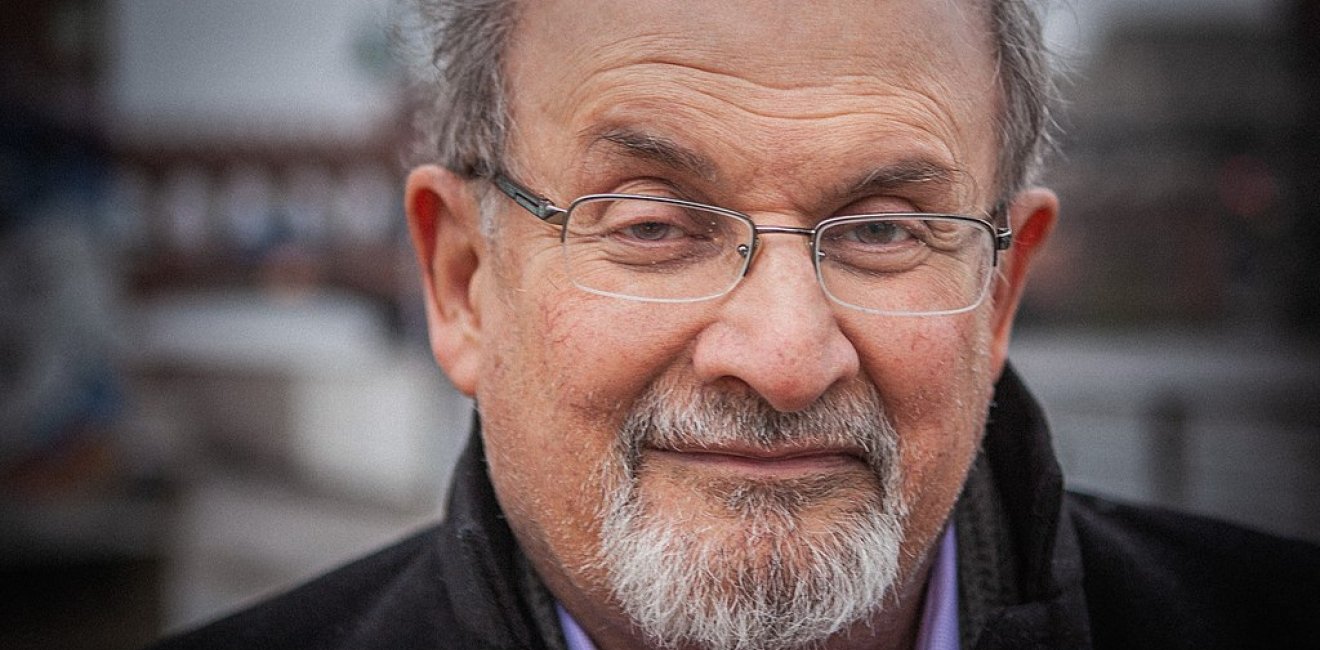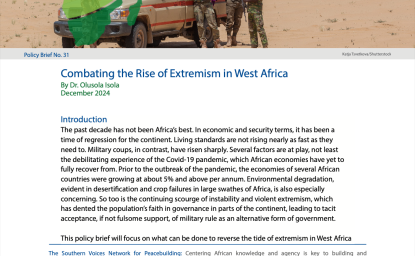Part 2: Timeline of Iran's Fatwa on Rushdie
Salman Rushdie has been a target of militant Muslims since 1989, when Ayatollah Ruhollah Khomeini issued a fatwa condemning the writer to death for alleged blasphemy in his novel “The Satanic Verses.”
Salman Rushdie has been a target of militant Muslims since 1989, when Ayatollah Ruhollah Khomeini issued a fatwa condemning the writer to death for alleged blasphemy in his novel “The Satanic Verses.”

Salman Rushdie’s novel, “The Satanic Verses” caused an uproar across the Muslim world after it was published in September 1988. The book was soon banned by India and some predominantly Muslim countries, although Iran did not react for nearly five months. In February 1989, Ayatollah Ruhollah Khomeini issued a fatwa condemning Rushdie to death after several Pakistanis died in protests over Rushdie’s book in Islamabad. The following is a timeline of events from publication of “The Satanic Verses” through the attack on the author by a Lebanese American in August 2022.
Sept. 26, 1988: “The Satanic Verses” was published by Viking Penguin in Britain.
Feb. 12, 1989: Hundreds of demonstrators attacked the U.S. cultural center in Islamabad, Pakistan, to protest the publication of Salman Rushdie’s “The Satanic Verses.” Local police fired on protesters, killing six people and wounding more than 80 others.

Feb. 14, 1989: The Supreme Leader of Iran, Ayatollah Ruhollah Khomeini, issued a fatwa calling on Muslims to kill Rushdie for blasphemy. “The Satanic Verses” is “against Islam, the Prophet and the Koran, and all those involved in its publication who are aware of its content are sentenced to death,” Khomeini proclaimed.Rushdie said that his book was not blasphemous. “I doubt very much Khomeini or anyone else in Iran has read this book or anything more than selected extracts taken out of context.”
Feb. 22, 1989: “The Satanic Verses” was published in the United States.
Feb. 24, 1989: Some 10,000 demonstrators marched on the British High Commission in Mumbai, India. Police opened fire on the crowd, killing a dozen people. At least 40 others were injured.
May 27, 1989: An estimated 20,000 Muslims protested in central London. They burned an effigy of Rushdie and called for his death. The demonstrators marched to Westminster, where the British Parliament meets. Clashes broke out between Iranians and Iraqis. Police arrested 101 protestors, including 15 who allegedly attacked officers.
Sept. 14, 1989: In Britain, four bombs were placed outside bookstores owned by Penguin, the publisher of “The Satanic Verses.” One bomb exploded, but no one was hurt. The others were defused.
July 3, 1991: Ettore Capriolo, the Italian translator of “The Satanic Verses,” was beaten and stabbed with a knife in his apartment in Milan. The attacker claimed to be Iranian.
July 12, 1991: Hitoshi Igarashi, the Japanese translator, was stabbed to death at Tsukuba University, where he had been teaching comparative Islamic culture for five years. Igarashi was stabbed to death by an unknown assailant, and the case was never solved. e
Sept. 7, 1995: Rushdie, after spending six years living in various safe houses, made his first publicly scheduled appearance in London at a panel discussion called, “Writers and the State.”
Feb. 12, 1997: The 15th Khordad Foundation, a religious charity, increased its bounty on Rushdie to $2.5 million eight years after it initially offered a reward.
Sept. 22, 1998: Iranian President Mohammad Khatami told journalists that the Rushdie affair should be considered finished. “From now on,” he said, “rather than the war of civilizations, we want to promote the dialogue of civilizations, and we hope we have entered the era of dialogue.”
Sept. 24, 1998: The Iranian government “has no intention, nor is it going to take any action whatsoever, to threaten the life of the author of 'The Satanic Verses' or anybody associated with his work, nor will it encourage or assist anybody to do so,” Iranian Foreign Minister Kamal Kharrazi told British Foreign Secretary Robin Cook.
Oct. 4, 1998: Some 160 members of Iran’s parliament said that the fatwa against Rushdie remained in effect.
Oct. 10, 1998: In Iran, a hard-line student group claimed that it would pay $1 billion for the killing of Rushdie.
Oct. 12, 1998: The 15 Khordad Foundation raised the bounty of Rushdie’s head from $2.5 million to $2.8 million. “To set a reward for killing Salman Rushdie has been a great honor for this foundation and we will keep this honor,” Ayatollah Hassan Saneii, the head of the foundation, said. “We should not let this issue be forgotten.”
Feb 3, 1999: India granted a visa to Rushdie, who had been born in Mumbai. Muslims protested in response to the move. Police opened fire and killed at least 12 rioters on February 25.
June 15, 2007: Rushdie was granted knighthood by Queen Elizabeth of Great Britain for his services in literature. Protests were held in Iran, Malaysia and Pakistan.
Jan. 20, 2012: Rushdie canceled a trip to India to attend the Jaipur literary festival, Asia's largest literary festival, due to the threat of assassination.
Sept. 16, 2012: The 15 Khordad Foundation raised its bounty on Rushdie from $2.8 to $3.3 million.
June 20, 2014: Rushdie was awarded the annual PEN/Pinter Prize for “his books and his many years of speaking out for freedom of expression, but also for his countless private acts of kindness,” head judge Maureen Freely said.
Oct. 13, 2015: At the Frankfurt Book Fair, Rushdie warned against new dangers to freedom of expression in the West, including attacks on writers and excessive political correctness. Iran’s Ministry of Culture canceled its stand at the fair due to Rushdie’s presence.
Feb. 22, 2016: Forty Iranian news outlets, including state-run ones, added $600,000 to the bounty for the killing of Rushdie. “These media outlets have set the $600,000 bounty on the 27th anniversary of the historical fatwa to show it is still alive,” Mansour Amiri, the organizer of the exhibition/ where the bounty was announced, told Reuters.
June 1, 2022: Queen Elizabeth made Salman Rushdie a Companion of Honour in the Queen's annual birthday honors.
Aug 12, 2022: Rushdie was stabbed in the neck and abdomen in an assassination attempt while lecturing at the Chautauqua Institution in upstate New York. Hadi Matar, the 24-year-old assailant and the son of immigrants from Lebanon, supported Iran and Hezbollah, its Lebanese proxy.

Learn more about Hamas and how it relates to similarly aligned organizations throughout the region. Read more


